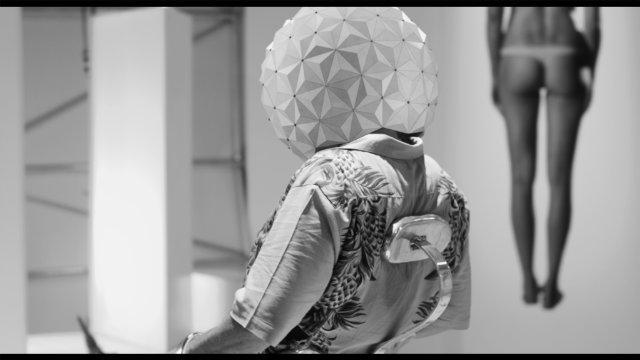At a recent New York screening of his controversial first feature, Escape From Tomorrow, writer-director Randy Moore explained the inspiration for his surreal story of a Disney World family vacation gone bizarre. His parents divorced when he was a kid, and when his father moved to Orlando, trips to Disney World became such a regular ritual that his memories of his dad are inseparable from the fantastical theme park. And now that he has had the chance to reflect on those memories and has returned to the park with his own children, Disney World no longer seems so innocent.
This is a common trajectory. At some point, we become a little unnerved by the fact that every other Disney movie kills off a parent (Bambi, Cinderella, The Lion King, and so on), or we struggle to reconcile fond memories of watching Sleeping Beauty and The Little Mermaid with the sad knowledge that these movies celebrate their leading ladies for having zero agency and screwed up priorities. Or we simply recoil at the eerie cheerfulness of the Disney outlook.
What Moore does in his movie is bring sex, violence, and despair to Disney’s iconic surfaces. The “It’s a Small World” ride becomes a demonic jaunt with sinister glares from the happy robotic children and dissonant children’s chants in place of that cloying, repetitive song. The princesses that greet children at the theme park are, in Moore’s movie, undercover prostitutes. Spaceship Earth rolls over screaming patrons. It’s not a great movie—the acting is often unintentionally funny—but it does do subversive Disney well. (And did so without Disney even knowing: The film was shot in three weeks at Disney World and Disneyland with an undercover cast and crew. Disney has made no efforts to curb the film’s release.) It’s a distinguished part of a fairly long tradition: Dirtying up Disney’s family-friendly empire.
Go online and you’ll find any number of Disney characters and films reappropriated for an older, kinkier audiences. People have been doing this since at least the 1960s; one of the most famous examples comes from the late cartoonist Wally Wood, whose fascinating collage of Disney characters gone wild, “The Disneyland Memorial Orgy,” was published in The Realist in 1967. Goofy has sex with Minnie, Tinker Bell performs a strip tease for an eager crowd (including Peter Pan, Jiminy Cricket, and Pinocchio), and, perhaps most egregiously, Pluto urinates on a huge picture of Mickey Mouse.
Disney films are occasionally violent, and a few feature small splashes of dark and/or sexual content (consider Peggy Lee and Sonny Burke’s mildly mature lyrics to “He’s a Tramp,” for instance). But for the most part their squeaky-clean sensibility invites perverse repurposing in a way that less uptight children’s fare—think Looney Tunes—does not. There’s a spiritual kinship between Escape From Tomorrow and the adult careers of former Disney darlings Britney Spears, Lindsay Lohan, and Miley Cyrus: Their hypersexual performances similarly skewer the old Disney façade, titillating their audiences with “bad” behavior.
Moore’s film—and, perhaps, Miley Cyrus’s career thus far—suggests that there’s still an interest in seeing Disney dirtied. You just have to take it a little bit farther, get a little bit weirder, and maybe stretch the boundaries of copyright law just a little more than those who came before.
